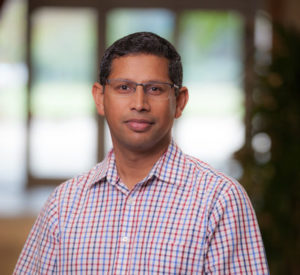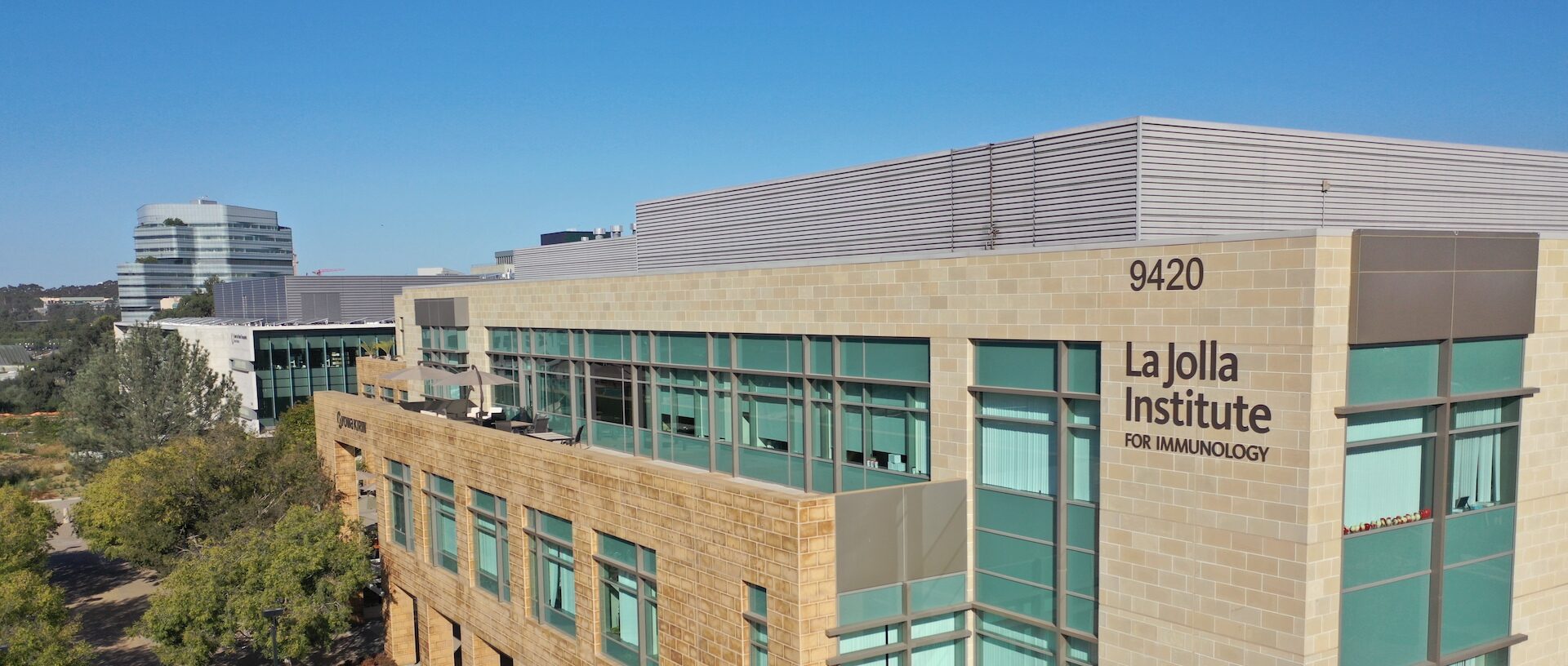LA JOLLA, CA—Pandurangan Vijayanand (Vijay), M.D., Ph.D., has been appointed to the position of associate professor in the Division of Vaccine Discovery at the La Jolla Institute for Immunology, the Institute announced today.
“With landmark funding from the William K. Bowes, Jr. Foundation for his work, we are delighted to secure Vijay’s appointment here at the La Jolla Institute,” says Mitch Kronenberg, Ph.D., president and chief scientific officer of the La Jolla Institute. “Vijay is a very accomplished physician-scientist who, in addition to a distinct and powerful skill set, brings a unique perspective to biomedical research that is inspired by his frontline experience caring for patients. We are fortunate to have him as a member of our faculty.”
A pioneering scientist and committed pulmonologist, Vijay brings to bear the full power of new and innovative genomics tools to understand, diagnose and treat pulmonary disease such as asthma, lung cancer and infectious disease. His laboratory has developed a number of techniques to study the molecular profiles of circulating and airway immune cells from patients with asthma and other diseases, using fewer cells than was possible previously. This makes it easier to obtain sufficient material for detailed genetic studies.

In a pioneering study, he applied these tools to a genome-wide study of disease-related changes in the epigenome—the layer atop the genome that controls gene activity and is altered by the environment—of immune cells isolated from patients with asthma. The first of its kind, the study provided specific markers to distinguish different disease states in asthma and paved the way for investigating the role of epigenetic mechanisms in other immune-mediated disorders and infectious diseases.
Vijay also oversees a large-scale effort to map epigenomic modifications in more than a dozen different types of human immune cells from normal individuals to understand how epigenetic variations cause susceptibility to disease. For many human diseases, large-scale genomic studies have identified common genetic variants that occur more frequently in people with cardiovascular, autoimmune, inflammatory and infectious diseases, diabetes and asthma than in those without these diseases. However, it has been difficult to pinpoint which genetic changes are truly relevant to disease, or in what specific cell types the genetic variation has the largest effect on one’s health. Mapping the epigenome will allow Vijay and his team to zoom in on those genes with the greatest likelihood to contribute to disease, and the cell types in which they act, and therefore will help identify novel therapeutic targets.
Dr. Vijayanand’s appointment to La Jolla Institute was made possible by a generous gift from the William K. Bowes, Jr. Foundation.
Vijay received his M.D. from the MGR Medical University in Chennai, India, and completed his residency in Internal Medicine followed by a Pulmonary Fellowship in the United Kingdom. In 2008, he obtained his Ph.D. from the University of Southampton, United Kingdom, where he studied the mechanisms of accumulation and activation of T cells in human asthma. Since then, Vijay has split his time between laboratory research and seeing patients at the University of Southampton, where he currently holds an appointment as an Associate Professor in the School of Medicine. In 2007, he was awarded a prestigious National Career Development Fellowship to undertake translational studies in the epigenetic regulation of the immune cell signaling molecules in human asthma under the mentorship of K. Mark Ansel, Ph.D., at UC San Francisco, where he was appointed adjunct assistant professor in the Department of Medicine in 2009. Two years later, Vijay joined the La Jolla Institute for Immunology as an adjunct assistant professor in the Division of Signaling and Gene Expression working under the supervision of Dr. Anjana Rao.
About La Jolla Institute for Immunology
The La Jolla Institute for Immunology is dedicated to understanding the intricacies and power of the immune system so that we may apply that knowledge to promote human health and prevent a wide range of diseases. Since its founding in 1988 as an independent, nonprofit research organization, the Institute has made numerous advances leading toward its goal: life without disease.


